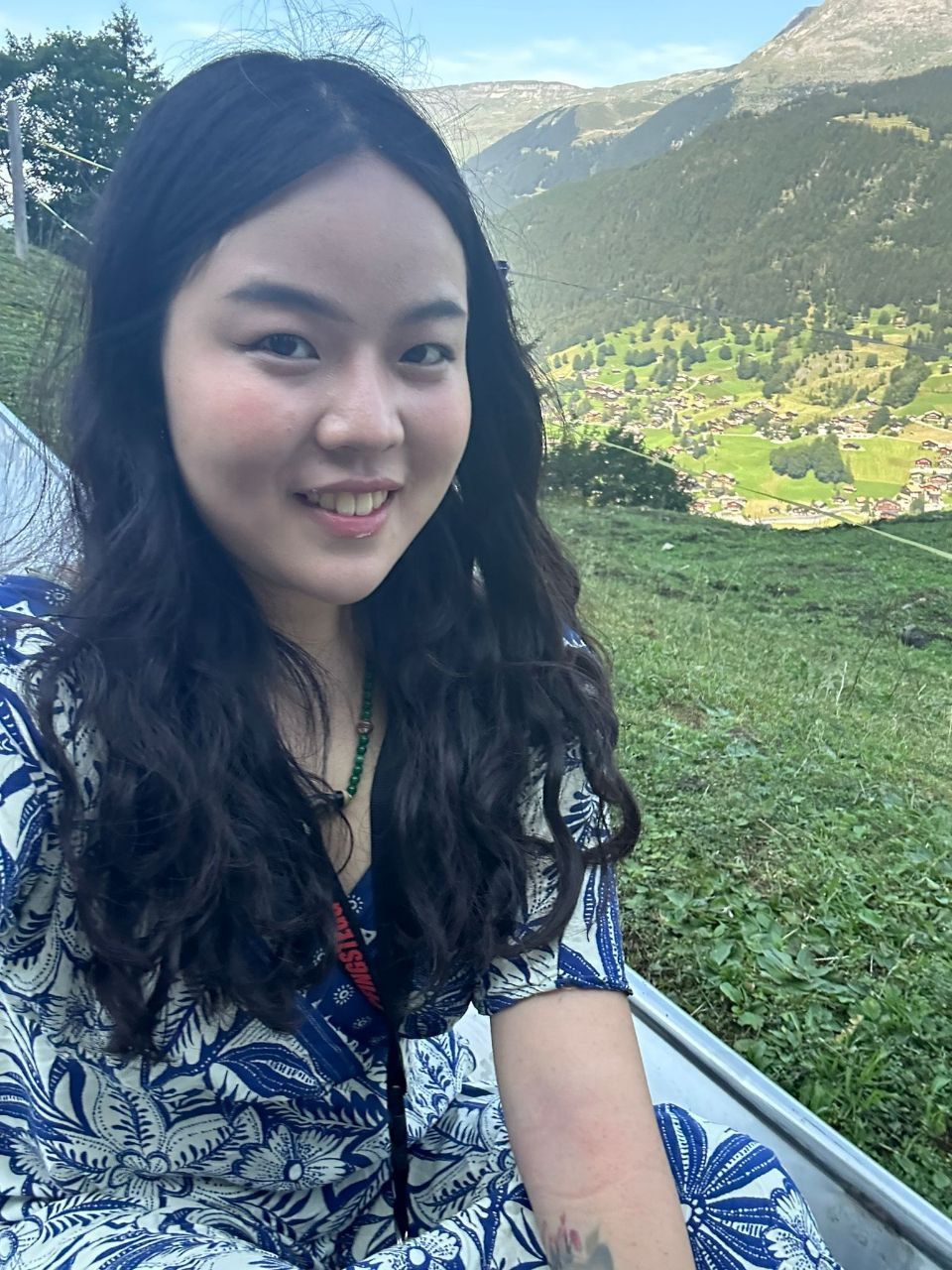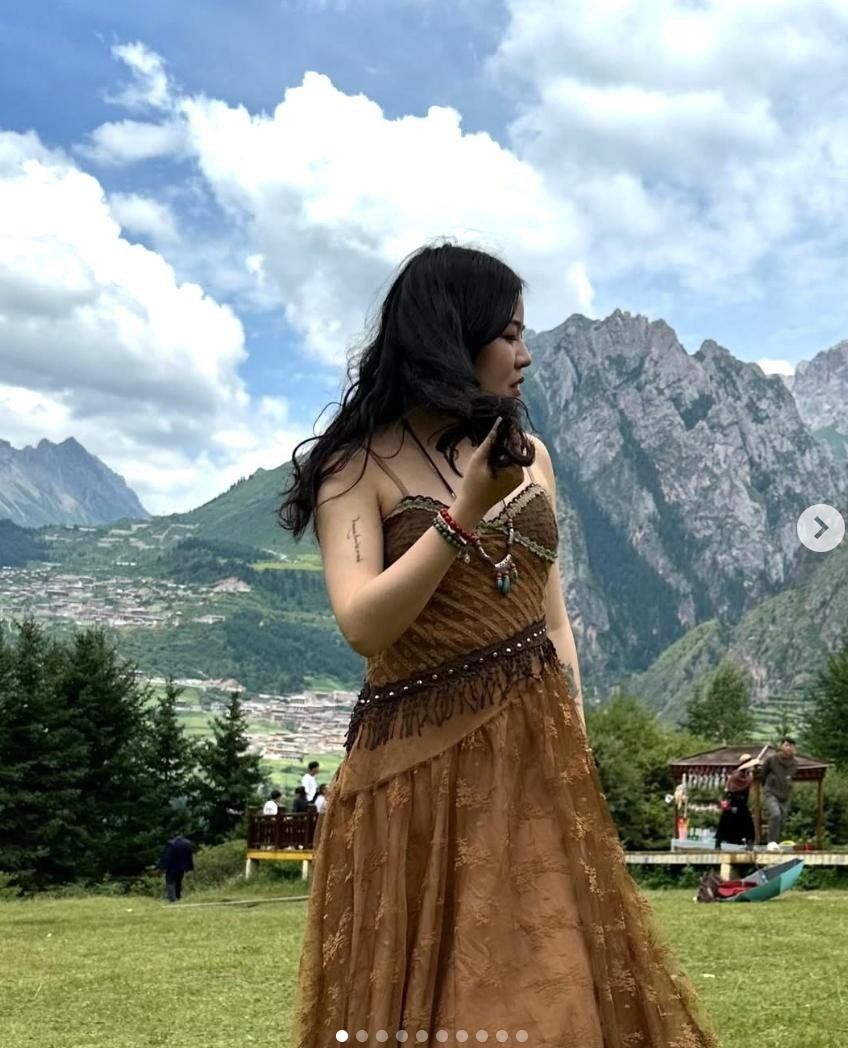

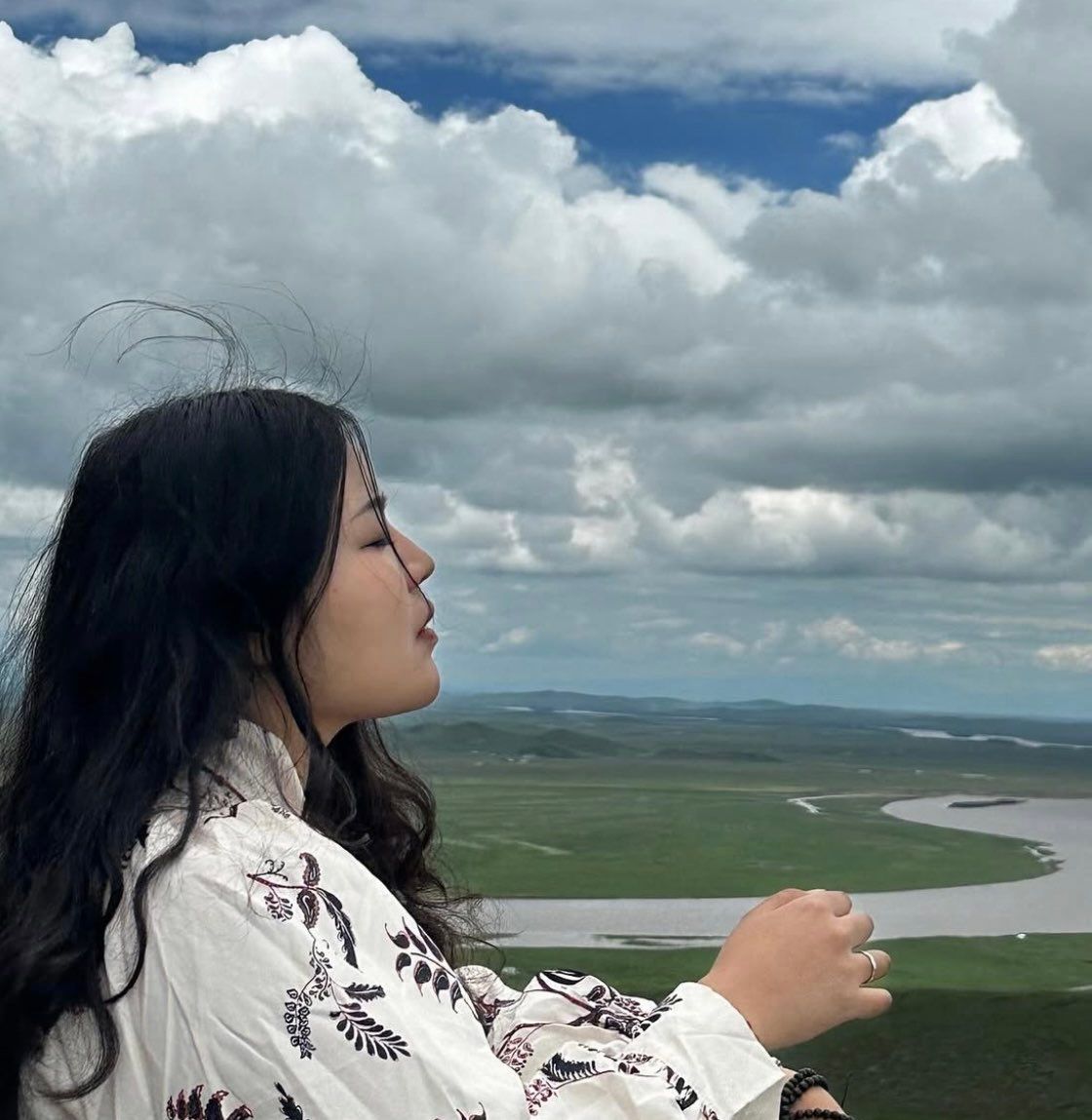
She walked through fear, speaking into the silence. Every time she opened a blank page, each word she wrote was like lighting a lamp in the night. On this narrow and difficult path, Zhang Yadi found the courage to pursue freedom.
(This article is based on publicly available information, including the YouTube channel “Western Suburbs Forest” and Zhang Yadi’s personal Twitter account, “Tara Freesoul.”)
Born in 2003 into an ordinary Han Chinese family in a major Chinese city, Zhang Yadi grew up within the mainstream education system. She was a top student and a highly sensitive young woman. During her teenage years, she experienced depression, isolation, and bullying at school. Amidst the pain of feeling out of tune with society, she gradually began to reflect deeply on China’s social structure, ethnic issues, and political oppression.
Before she was arrested in China in July 2025, Zhang Yadi was a vocal advocate who spent years studying abroad and exploring the outside world in the face of political oppression. She engaged with online and offline activities around issues banned within China, such as the June Fourth Tiananmen Massacre. She was active at the White Paper protests and in the Chinese exile community. She was one of the earliest members of the social media group “Chinese Youth Stand for Tibet,” introducing Tibetan history, culture, and human rights issues to the Chinese-speaking world. She once said, “Supporting Tibetans is not just about speaking out for them, but also about fighting for a path to freedom for ourselves.”
From a Lonely Teenager to a Self-Taught Student, Her Political Consciousness Awakened in Silence
Born in 2003, Zhang Yadi was an introvert from a young age and faced severe bullying in junior high school. The prolonged isolation led her to fall into depression, forcing her to take a year off from school. During this period of silence, she began to observe and reflect on the outside world. Through VPNs, banned book websites, and other channels, she saw “China outside the Great Firewall” for the first time. She began to delve into psychology, sociology, political theory, and religious philosophy, gradually realizing that she was living in a carefully wrapped cocoon.
This was also when Zhang Yadi began to focus on Chinese politics, democratic movements, and the history of social movements, and also encountered the Tibetan issue for the first time. From the Dalai Lama’s autobiography, “Freedom in Exile,” to a June Fourth photography collection, and from the oral histories of Uyghur scholars to the writings of the Tibetan poet Tsering Woeser, these “other perspectives” once deliberately suppressed by the authorities became the center of her spiritual world. “I want to know why they are banned,” she said. “The more hidden something is, the more I want to know.”
She remembers the first time she felt truly struck by the news was when she saw the news about Tsewang Norbu’s self-immolation. Born in 1996, Tsewang Norbu was a pop singer from Nagqu, Tibet. He competed on programs such as “Chinese Good Man” and “The Coming One.” On February 25, 2022, overseas media reported that he had died from self-immolation as a protest in front of the Potala Palace in Lhasa. This incident resonated deeply throughout the Tibetan community.
Shaken, Zhang Yadi realized that such incidents were not just distant headlines abroad, but a harsh reality that concerned her deeply. She understood that in the struggle for freedom, some had paid—and were still paying—with their lives.
Twitter Opened Her “Window to the World”
In early September 2022, upon arriving in France to study, Zhang Yadi immediately registered a Twitter account and became active there, connecting with overseas Chinese dissident communities and the voices of diverse ethnic groups around the world. She followed protests across China and the voices and struggles of marginalized groups like Tibetans, Uyghurs, Hong Kongers, and Iranian women. She said, “I finally found a free space, a platform where I could see the real world.” For her, Twitter not only provided an outlet for free speech but also became a window for her to observe the world and connect with others.
Zhang Yadi particularly enjoyed reading narratives from women and people from diverse cultural backgrounds. In an interview, she mentioned an Iranian woman’s Twitter account, written in English, of her experience fleeing her homeland and removing her veil. “That specific and personal expression” deeply moved Zhang Yadi and prompted her to reflect on how, as a young dissident from China, she could express and convey her thoughts and perspectives.
On Twitter, she also followed many overseas Tibetan accounts, learning more about the real history and experiences of Tibetan exiles. These independent channels of information, uncensored by the Chinese Communist Party, transformed her understanding of the world. “I never imagined I’d one day hear these people’s voices,” she said. “In China, it’s simply impossible.”
Even though she was overseas, she remained extremely cautious when posting. She repeatedly checked her words to avoid leaving any information that could be traced back to her. She worried about whether she'd ever be able to return to China, and about how her comments might affect her family back home. Ultimately, she decided to stay on Twitter: “As long as this account is still there, I have a place to speak out.”
She understood that she was a minority among Han dissidents, and an even smaller minority among Han Chinese who care about Tibetan issues. “Many people oppose the CCP but don’t support Tibet. Many people support democracy but don’t believe others deserve freedom,” she said. “But I don't intend to influence everyone. If one article can help one person understand Tibetans a little better, that’s enough.”
Connecting Religion with Tibetan Life: A Path to Empathy for Marginalized People
Zhang Yadi has no Tibetan ancestry and her ID card states “Han,” but she has always had a strong interest in minority cultures, frequently reading myths, stories, and Tibetan Buddhist folklore. Eventually, she converted to Han Buddhism and began to learn about Tibetan Buddhism. In her mind, “There is no conflict between sects; faith is one.”
While studying in France, Zhang Yadi became involved with the Tibetan community. She participated in their activities, learned about their past, and heard their real-life experiences, such as crossing the Himalayas into exile, being cut off from family in China, and being tracked down by police for sharing scriptures on WeChat.
She gradually realized that China’s so-called “ethnic issues” are not abstract political concepts, but realities that countless people face through their daily lives, their faith, and their families. “I understand their fear, because I, too, have been frightened to say a single word,” she once shared.
Abroad, Zhang Yadi not only spoke out for Tibetans but also deepened her own faith and cultural experience. She once published an article on “Tibet.com” (the official news of the Central Tibetan Administration) under the pen name “Tara Freesoul,” stating, “having seen His Holiness the Dalai Lama in person, I have no regrets in my life.” In the article, she described attending a longevity ceremony in Zurich, where she saw His Holiness seated on a golden throne, witnessed crowds of people in Tibetan robes, and heard the sounds of rosary beads and Buddhist chants.
She said she first learned about the Dalai Lama as a teenager, when she heard that Lady Gaga had been banned in China for meeting with him. At the time, she didn’t understand the history and politics behind the incident, but she felt a vague curiosity: How could an elderly Tibetan man cause an international superstar to be wiped from the Chinese internet? Years later, as she delved further into the Tibetan issue and the Dalai Lama’s historical role, she realized that this figure, portrayed by the Chinese government as a “separatist,” was actually a spiritual leader in the hearts of Tibetans, a Nobel Peace Prize winner, and a world-class religious leader. That vaguely remembered “ban” became a gateway to the world for her, igniting her desire to pursue the truth.
The White Paper Revolution Marked Her First Time Raising a Banner
In November 2022, the Urumqi apartment fire tragedy sparked “White Paper Protests” across China. Zhang Yadi had only been in France for three months when she saw a tweet about a solidarity rally in Paris’ Place de la Liberté. She brought white paper and candles, printed a sign, and attended the rally, wearing a mask. Standing amid the crowd, her signs read “Say No to the CCP” and “No Dictatorship, Yes to Elections.” After returning home, Zhang Yadi expressed her feelings on Twitter (the following text is from Twitter and is Tara’s original post):
“My heart has been hurting these past two days.”
“There is no difference between the me right now and the me who was suffocating in that horrific environment.”
“The divide between people is the difference between that faint flicker of conscience and the darkness of ignorance and evil.”
“Can you see? That white paper is soaked with the blood we’ve shed.”
“If no one stands with me, then I will walk alone, just as I have walked this bloody road for so many years.”
Recalling that moment later, she said, “I think this was a very, very meaningful moment for me. It was the first time in my life that I publicly expressed my political views. I held the banner high, and at that moment, I felt so proud of myself. I felt like I had lived a brave life. I felt like only in this way can I truly live the life I want.”
Zhang met several young activists at that event, and from then on began to participate more consistently in the Chinese dissident community in Paris. After that day, she participated in many events for Chinese human rights, Tibetan protests, and interethnic exchange activities. From the beginning, she knew that this journey will not be easy, but it was a path she truly wanted to take.
Digital Exile and Written Resistance: Rebuilding Memory and Voice
On her Twitter page, Zhang Yadi frequently retweets human rights news, drives initiatives, and writes commentary on current political events.
After Alexei Navalny’s death in February 2024, Zhang Yadi posted a series of tributes on Twitter, expressing her admiration for “the political activist she has admired most for many years.” She wrote, “Don’t underestimate the evil of dictatorship. Alexei Navalny’s extraordinary courage and fighting spirit live on in my heart.” In another tweet, she bluntly stated, “The dictators are afraid,” believing that what truly what makes them tremble is the unyielding spirit of the people.
In March 2024, she visited the memorial in Paris to lay flowers and wrote, “Putin is nothing but a cowardly dick,” unabashedly expressing her contempt for the dictator. She said Navalny is “a true hero,” and his choice to return to Russia without fear of death set an example for her: “They may take a person’s life, but they can never destroy his belief in freedom.”
Several of her Chinese articles have been published by social media group such as the “Chinese Youth Stand for Tibet.” One of them, a biography of the Dalai Lama’s brother, Gyalo Thondup, was even reprinted by Tibet.com. She said that when writing the article, she tried to use easy to understand language to introduce a little-known piece of history.
Around the June Fourth anniversary, Zhang Yadi posted a message of condolences on social media. On June 4, 2025, she tweeted a snippet of the lyrics for “Democracy Will Triumph and Return,” a song originally written by a Hong Kong musician that has become a symbolic anthem of democracy in Chinese dissident circles. The song goes:
Democracy shall triumph and return,
With the tidal waves of era embracing change’s churn.
If love yet dwells in this world’s sphere,
Even within the confines of prison walls,
My freedom aligns with heaven and earth.
[Lyrics translated into English by Zhang Yadi.]
The following is an essay Zhang Yadi wrote in 2021 about June Fourth:
Any person with a conscience in this land will inevitably suffer from political depression.
The bloody truth cannot be concealed. The bullets of June 4th, 1989, have survived three decades of ups and downs, and still strike wounds in my soul.
I stand with the innocent souls, sharing their anger and sorrow.
I never want to see Tiananmen Square again.
November 2024, the second anniversary of the White Paper Movement, was also two years since Zhang Yadi first publicly participated in offline political dissent. She wrote on Twitter: “I am the bravest person! I will always remember that day two years ago. No matter what, my original intention will never change.”
Zhou Fengsuo, a witness to the June Fourth Incident, retweeted Zhang Yadi’s tweet with the caption:
“I am the bravest person!” May this be a lifelong blessing for the White Paper Generation. For participants, the most important thing is to discover their own courage and the freedom it brings, and to discover each other within the movement. Promoting China’s path towards freedom requires generations of people who discover their own courage through action.
The secret to freedom is courage.”
She walked through fear, speaking into the silence. Every time she opened a blank page, each word she wrote was like lighting a lamp in the night. On this narrow and difficult path, Zhang Yadi found the courage to pursue freedom.
Joining “Chinese Youth Stand for Tibet”: Not a Romantic Escape, But a Realistic Belonging
In the spring of 2024, Zhang Yadi came across a video of Tibetan protests in San Francisco. It was a commemoration of the March 10th Tibetan Uprising Day. Spokesperson Ginger announced the establishment of a social media group called “Chinese Youth Stand for Tibet,” whose goal was to educate the Chinese-speaking world about the real plight of Tibetans. She immediately contacted Ginger, introduced herself, and expressed her strong desire to join. The association had just been established, with only a handful of members, and she became one of the earliest participants.
“I felt like I had finally found someone to walk shoulder to shoulder with,” she said.
“Chinese Youth Stand for Tibet” was founded by a group of young Chinese dissidents living abroad. Most members were learning or already knew Tibetan, and many had long-standing concerns about Tibetan culture and human rights issues. The organization’s original goal was to promote communication between Han Chinese and Tibetans through social media, translation work, and talks, allowing Han Chinese to better understand the real plight of the Tibetan community and the historical and human rights violations they had suffered in the past.
“We hope to establish a channel to allow more Han Chinese to understand the real situation of the Tibetan community,” she said. “When Chinese officials mention Tibetans, they use the word ‘separatism’. We want to break this labeling and let everyone understand them from the perspective of real people and their lives.” Her participation in Chinese Youth Stand for Tibet was as a volunteer writing posts for social media.
She said, “If China could be as free as Taiwan, that would be my greatest wish in life.”
Carrying the flame of courage and freedom, young Zhang Yadi was a traveler amidst the storm. Human Rights in China once published several of her translated poems about the June Fourth Massacre, one of which reads:
Child,
do not be afraid!
Now you are lying steadily
in Mother’s arms.
Mother smooths the yellow hair
from your forehead,
I beg the gentle breeze to protect you,
to carry you away from this land of blood and lies.
And Mother,
will often mourn,
remembering your broad forehead
and soft hair like youthful spring
In that square scorched by fierce fire,
where the corpses stuck on the ground,
Mother waits for the day
to seek justice for you.
In 2024, she traveled to Taiwan and saw books such as the Dalai Lama’s autobiography, Buddhist texts, and freely published Chinese political criticism openly displayed in bookstores. She described it as a “shocking” moment—not because Taiwan seemed so far away, but because the coexistence of press freedom, local culture, and democratic politics in China always seemed unattainable.
“If China could be as free as Taiwan, that would be my greatest wish in life,” she said.
She knew it wouldn't happen soon. But she also knew that as long as she continued to think independently, write, and speak out, people would hear her.
Arrested Upon Returning to China: The Price of Freedom and Truth
In September of this year, Zhang Yadi was scheduled to attend the School of Oriental and African Studies (SOAS) at the University of London. At the end of July, she was arrested while traveling to China to visit her family and lost contact in Shangri-La, Yunnan. It was later confirmed that she had been detained on suspicion of “inciting separatism” and held in the Changsha National Security Bureau Detention Center for over a month and a half. Although her family quickly hired a lawyer, the lawyer’s legal request for a meeting with her was denied. Prior to her recent arrest, she had returned to China several times out of concern for her parents and family, the most recent of which was in January 2025.
Her arrest shocked her friends. Most of Zhang Yadi’s speeches and actions took place overseas, falling within the realm of intellectual exploration and freedom of expression. Yet, even upon returning to China, she was still subject to arrest. This dramatic shift in reality served as a reminder to everyone: There is no true “safe zone” for those who question power or show concern for those who are “silenced.”
On September 16, Jiang Tianyong, a prominent lawyer known for the “709 Crackdown,” traveled to Changsha to attempt to provide legal advice to Zhang Yadi’s mother. Shortly after arriving, he was forcibly abducted by three unidentified individuals, though he was eventually released. Zhang Yadi’s plight, and the legal and security pressures her family faces, have drawn sustained attention from overseas communities and human rights organizations.
She wasn’t a loud voice, but her gentle yet resolute choices made her a threat to the authorities. Now, with her freedom and voice stripped away, more questions remain unanswered: Why has expressing empathy and understanding, and documenting the stories of victims, become a “crime”? And isn’t the plight she endures a reflection of the very real fate that many dare not speak of?
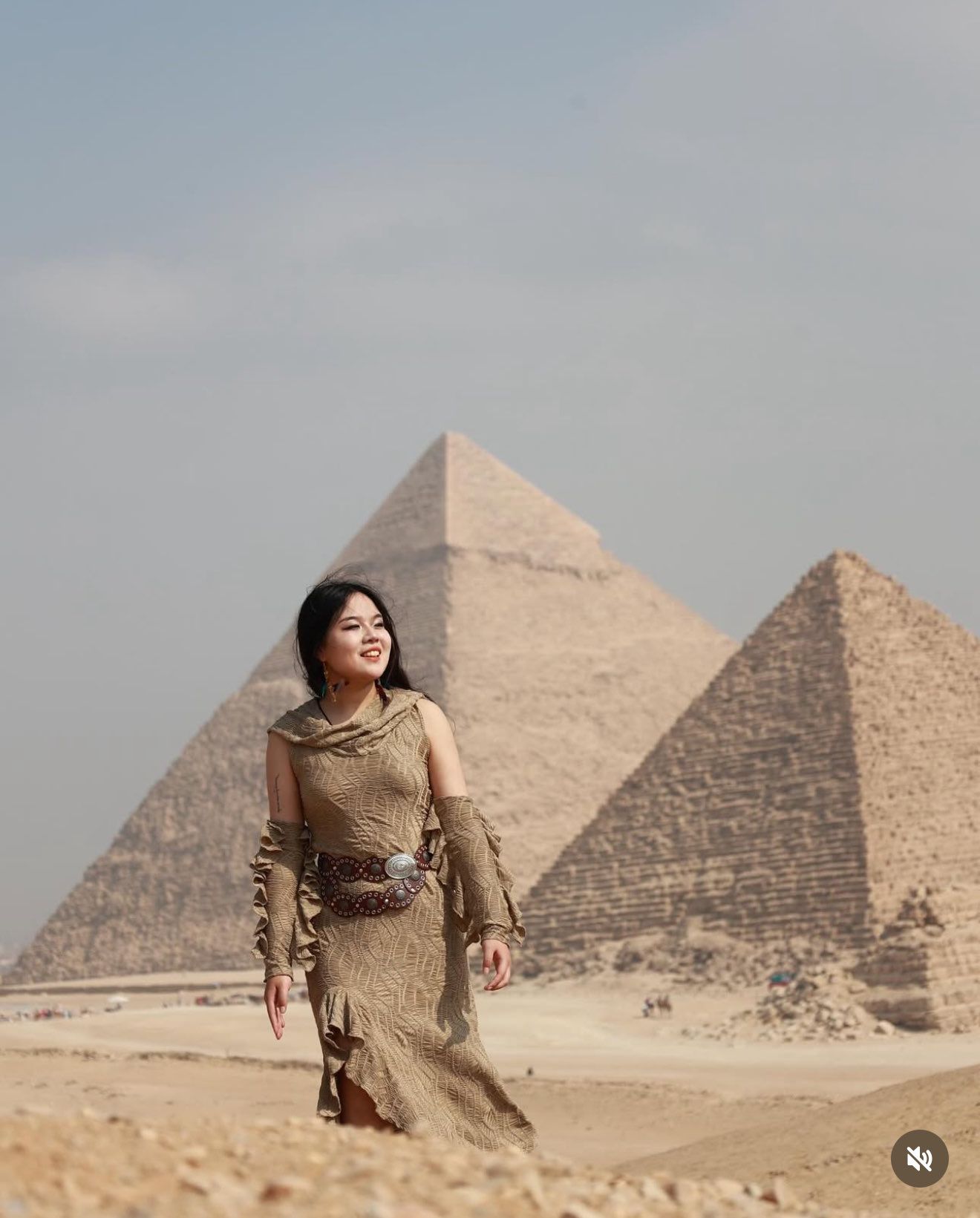
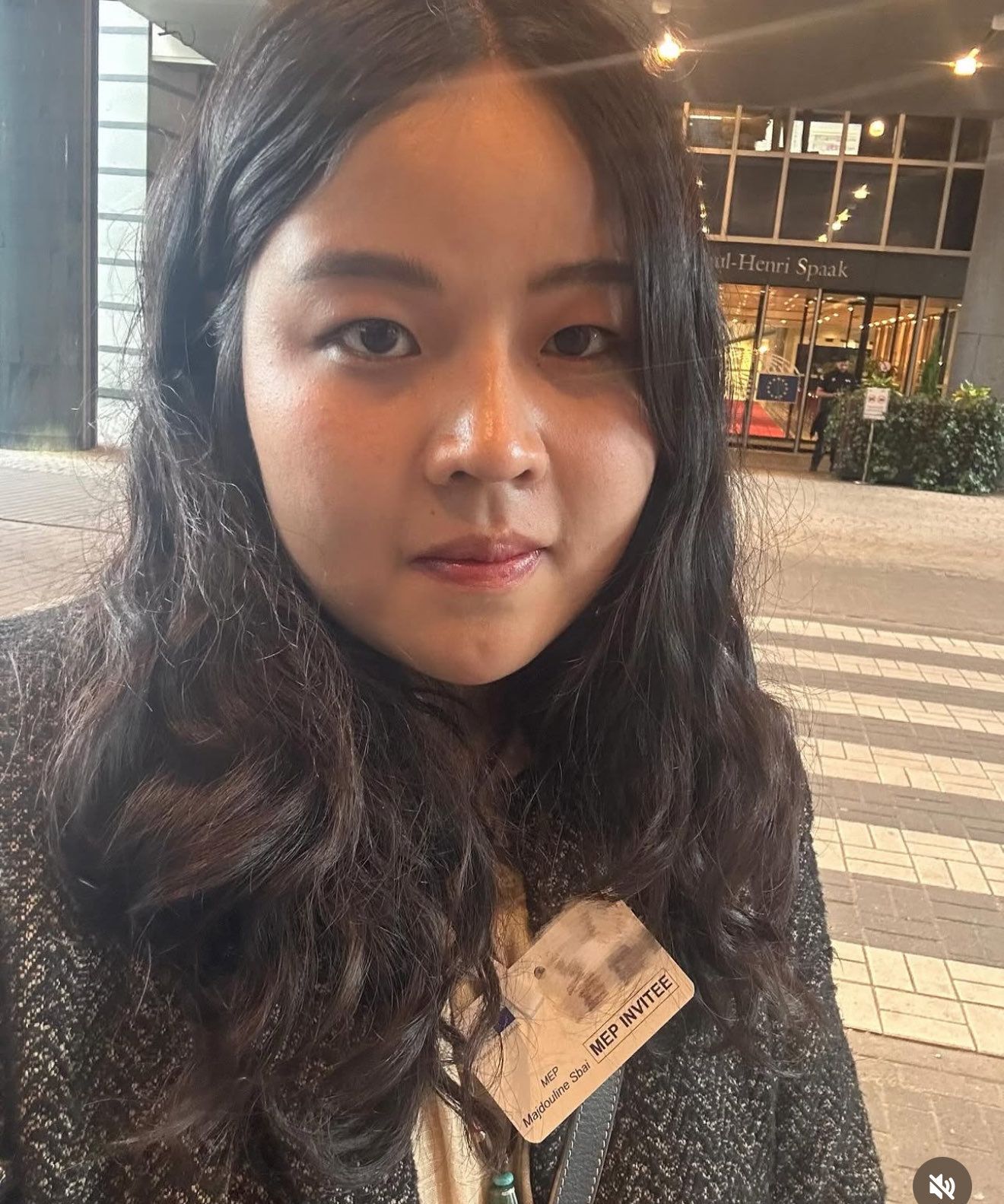

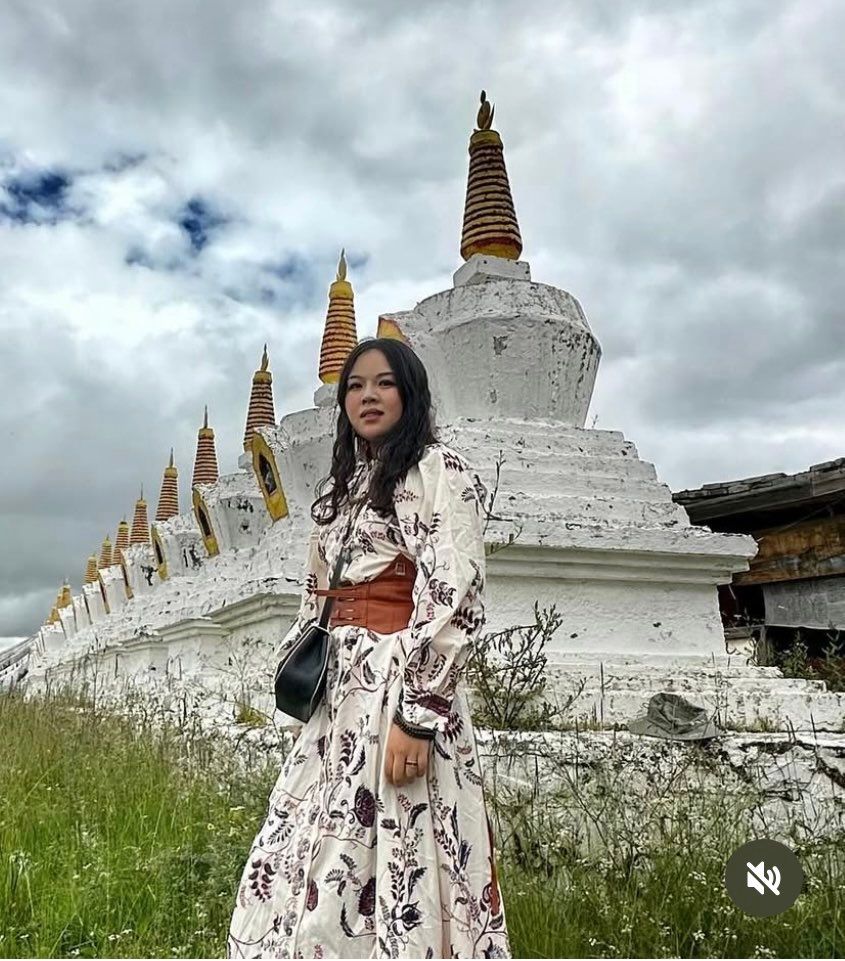
Sources:
